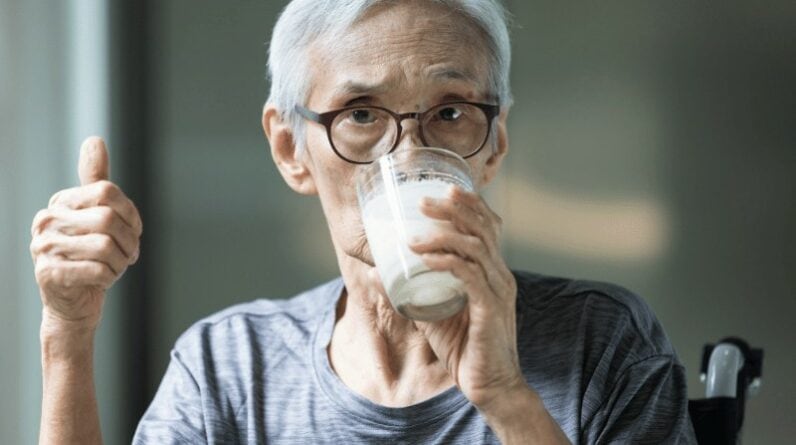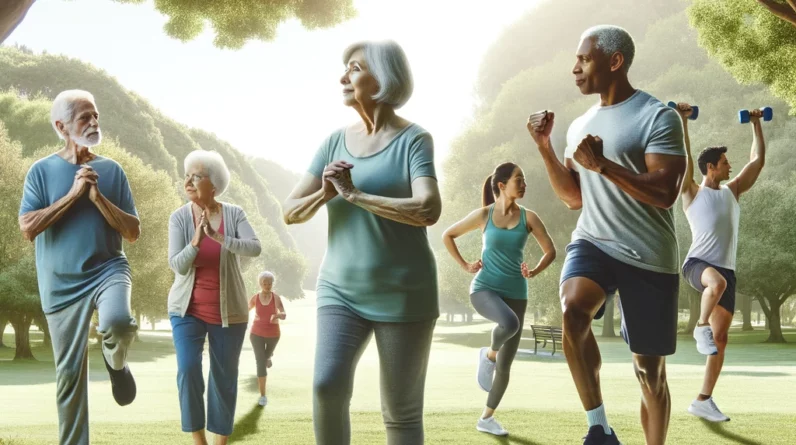Introduction
Welcome to our comprehensive guide on preventing age-related diseases and conditions. As we age, it’s essential to understand the various factors that can impact our health and well-being. In this article, we’ll explore the significance of lifestyle choices, medical strategies, environmental influences, and more in promoting healthy aging.

Dementia Discovery That is Leaving Doctors Speechless (Try This Tonight)
Better than Morphine For Joint Pain… Yet Safer Than Aspirin?
Retire With Freedom. Start Earning Extra Cash Today.
By addressing these aspects, you can take proactive steps to reduce the risk of age-related ailments and enjoy a fulfilling and vibrant life.

Understanding Age-Related Diseases And Conditions
Age-related diseases and conditions refer to health issues that become more prevalent as individuals grow older. These ailments can affect various systems of the body, including the cardiovascular, musculoskeletal, and neurological systems.
Common age-related diseases may include:
- Arthritis
- Cardiovascular disease
- Dementia
- Osteoporosis
As individuals age, they become more susceptible to these and other age-related conditions. It’s important to recognize that aging itself is not a disease, but rather a natural process that can contribute to an increased susceptibility to certain health conditions.
Common Age-Related Diseases
Cardiovascular Diseases:
Heart disease and stroke are prevalent among older adults. Changes in the heart and blood vessels that occur with age are major contributors to heart disease in the elderly. Furthermore, the risk of stroke increases with age due to factors such as high blood pressure, atrial fibrillation, and atherosclerosis.
Cognitive Decline and Memory-related Conditions:
Cognitive decline is a natural part of aging, often manifesting as changes in memory, reasoning, and processing speed. Dementia, a collection of symptoms that include memory loss, personality changes, and impaired reasoning, is a common concern among elderly individuals.
Musculoskeletal Issues:
Arthritis, including osteoarthritis, rheumatoid arthritis, and gout, becomes more prevalent with age. Osteoporosis, a condition characterized by a decrease in bone density, is also a significant musculoskeletal concern for the elderly.
Respiratory Conditions:
Chronic obstructive pulmonary disease (COPD) and other respiratory conditions become more common as individuals age. The natural aging process, combined with environmental and lifestyle factors, can contribute to the development of respiratory issues in older adults.
Neurological Disorders:
Conditions such as Parkinson’s disease and multiple sclerosis have a higher incidence in older age. These neurological disorders present unique challenges and require specialized care for elderly individuals.
Cancer:
The risk of developing cancer increases as individuals age. Age-related changes in the body’s cells and DNA damage accumulation contribute to the higher prevalence of cancer diagnoses among the elderly.
Lifestyle and Behavioral Factors
Nutrition and diet play a pivotal role in promoting healthy aging and mitigating the risk of age-related diseases. Consuming a well-balanced diet rich in fruits, vegetables, lean proteins, and whole grains provides essential nutrients and antioxidants that support overall health.
Moreover, maintaining proper hydration and limiting the intake of processed foods and added sugars can contribute to better long-term well-being.
- Include a variety of fruits and vegetables to ensure a wide range of essential vitamins and minerals
- Choose lean proteins such as fish, poultry, beans, and nuts to support muscle mass and overall health
- Opt for whole grains like brown rice, quinoa, and oats to increase fiber intake and promote digestive health
- Emphasize the importance of hydration and encourage regular water consumption throughout the day
- Highlight the negative effects of processed foods and added sugars on health and well-being
Exercise and Physical Activity
- Engaging in regular physical activity and exercise is beneficial for individuals of all ages, especially seniors.
- Physical activity helps maintain muscle strength, flexibility, and cardiovascular health.
- Incorporating activities such as walking, swimming, yoga, and strength training can contribute to a healthier aging process.
- Exercise plays a crucial role in warding off chronic conditions like diabetes and obesity.
- Additional benefits of exercise include improved mental well-being and better quality of life.
Quality sleep and effective stress management are integral components of healthy aging. Adequate sleep supports immune function, cognitive performance, and emotional well-being.
Likewise, implementing stress-reducing techniques such as meditation, deep breathing exercises, and mindfulness practices can help alleviate the impact of stress on overall health, thereby contributing to a more resilient aging process.
Medical and Preventive Strategies
Regular Health Screenings
Undergoing regular health screenings and check-ups is crucial for identifying potential health issues early on and initiating appropriate interventions. Screening for conditions such as hypertension, diabetes, cancer, and osteoporosis enables prompt diagnosis and management, ultimately contributing to improved health outcomes and a reduced risk of disease progression.
Vaccinations and Immunizations
Importance of Vaccinations:
Vaccinations are crucial for preventing infectious diseases and their complications, especially as individuals age. They help bolster the immune system and reduce the risk of severe infections and associated health issues.
Common Vaccines:
Various vaccines serve the purpose of safeguarding individuals from specific diseases. Some common examples include:
- Influenza Vaccine: Also known as the flu shot, this vaccine is administered annually to protect against the seasonal flu virus. It is especially important for older adults and those with chronic health conditions.
- Pneumococcal Vaccine: This vaccine is designed to provide immunity against pneumococcal diseases, including pneumonia, meningitis, and septicemia. It is particularly recommended for older adults and individuals with certain medical conditions.
- Additional Vaccines: In addition to influenza and pneumococcal vaccines, there are many other vaccines recommended for adults based on factors such as age, lifestyle, occupation, travel, and underlying health conditions. These may include vaccines for shingles, tetanus, diphtheria, pertussis, and more.
Enhancing Immunization Coverage:
It’s important to promote widespread immunization to protect individuals and communities from vaccine-preventable diseases. This can be achieved through education, access to vaccination services, and public health initiatives.
Healthy Aging Therapies
Embracing healthy aging therapies entails adopting a holistic approach to promote overall well-being and resilience during the aging process.
These therapies encompass a wide range of strategies that aim to optimize physical health, cognitive function, emotional wellness, and social engagement.
It is essential to recognize that healthy aging therapies are not merely about extending lifespan but enhancing the quality of life as we age.
Some of the key components of healthy aging therapies include:
- Hormone Replacement Treatments: Hormones play a crucial role in various bodily functions, and their decline with age can significantly impact health. Hormone replacement therapies are designed to restore hormonal balance and alleviate symptoms associated with hormonal deficiencies.
- Nutritional Supplementation: Proper nutrition is fundamental for healthy aging. This involves incorporating essential vitamins, minerals, and antioxidants into the diet to support cellular health, immune function, and energy metabolism.
- Personalized Exercise Regimens: Tailoring exercise programs to individual needs and capabilities is pivotal for maintaining physical strength, flexibility, and cardiovascular health. It also contributes to the prevention of age-related conditions, such as osteoporosis and sarcopenia.
Furthermore, healthy aging therapies emphasize proactive steps such as stress management techniques, mindfulness practices, and social connections to promote mental and emotional well-being.
Adopting healthy aging therapies is a proactive investment in one’s well-being, fostering a vibrant and fulfilling life throughout the aging process.
Environmental and Social Influences
The environment in which individuals live and interact can significantly influence the aging process and overall health outcomes.
Factors such as air quality, access to green spaces, and exposure to environmental pollutants can impact respiratory health and cardiovascular function, highlighting the relevance of creating supportive and health-promoting living environments for older adults.
Social Engagement and Support
Active social engagement and strong support networks are vital for maintaining mental and emotional well-being in older individuals.
Social connections, community involvement, and access to meaningful relationships play a pivotal role in combating feelings of loneliness and isolation, ultimately contributing to a more fulfilling and enriched aging experience.
Examples of active social engagement include:
- Participation in community events and gatherings
- Joining clubs or groups based on common interests or hobbies
- Volunteering for local organizations or causes
Benefits of strong support networks:
- Emotional support during challenging times
- Increased sense of belonging and connectedness
- Opportunities for shared activities and experiences
Conclusion
In conclusion, taking proactive measures to prevent age-related diseases and conditions is essential for fostering healthy aging and well-being. By incorporating sound lifestyle practices, engaging in regular health screenings, embracing preventive strategies, and ensuring supportive environmental and social influences, individuals can enhance the quality of their aging journey.
This comprehensive approach to healthy aging empowers individuals to mitigate the impact of age-related ailments and lead fulfilling lives as they grow older.
Disclaimer: The information in this article is intended for educational and entertainment purposes only and should not be used instead of or contrary to that of a medical professional.
Before taking supplements, starting a new diet, or embarking on a new exercise regime please consult a medical or nutritional professional.
The owners of “Getting Healthy After 50” are not medical professionals and are simply redistributing information that is freely available on the internet.






